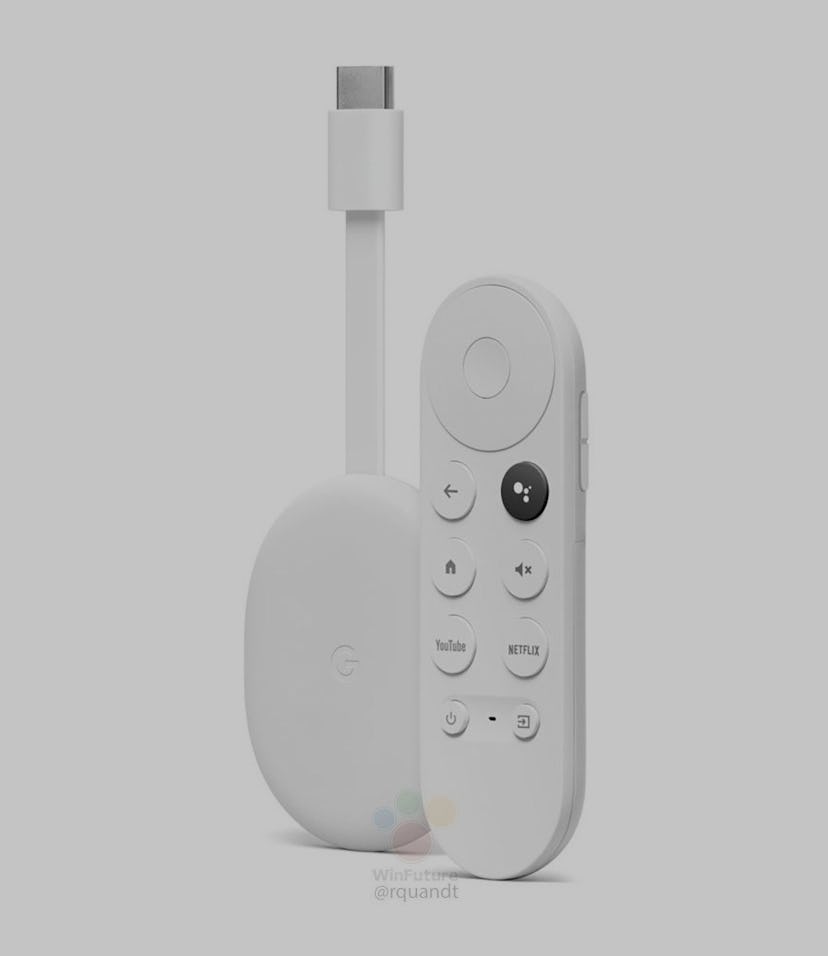Tech
Thank the lord: the next Chromecast may include a remote for the first time
Besides casting, the new device will reportedly support dedicated apps like Netflix and YouTube.

New images have been published that claim to show what is set to be the next-generation Chromecast, which Google is expected to unveil at its September 30th hardware event. The new streaming dongle includes something that Chromecast users have wanted for a long time... a remote. Previous reports have indicated the change, but this is the first time we're seeing pictures.
Based on reporting from 9to5Google and these new images released by WinFuture, it seems like Google is turning Chromecast into more of a traditional streaming device akin to Roku or Amazon's Fire TV. The remote features dedicated buttons for YouTube and Netflix, suggesting that it will run dedicated apps.
The new remote also has a D-Pad at the top and a volume rocker on the side, as well as buttons for back, Assistant, home, and mute. It seems like the device may end up running Android TV, Google's less popular TV operating system.
Catching up — The Chromecast concept was all about simplicity from the start because developers could quickly integrate a casting button into their apps, allowing users to press one button and quickly start projecting movies and shows to a TV. It was a lightweight solution that didn't require much processing power — coupling that with the lack of a remote made the dongles cheap.
But casting is a bit cumbersome and has its faults, like regular lost connections between the phone and the Chromecast that make it impossible to unpause content. Remotes are, it turns out, more reliable and convenient because they cannot lose their Wi-Fi connection.
Owning the platform — Of course, casting will still work if you want to do that. It's just that a full-featured dongle could help Google catch up to competitors with more to offer in a similar price range. Controlling the platform also ensures it doesn't have to pay anyone to distribute its services — HBO is currently locked in tough negotiations with Roku and Amazon over offering its HBO Max service on their dongles and how much revenue it might need to share with them.
Google has been trying to woo big brand advertisers into buying YouTube ads that play specifically on smart TVs in hopes it can rake in the high prices that those commercials draw over web ads.